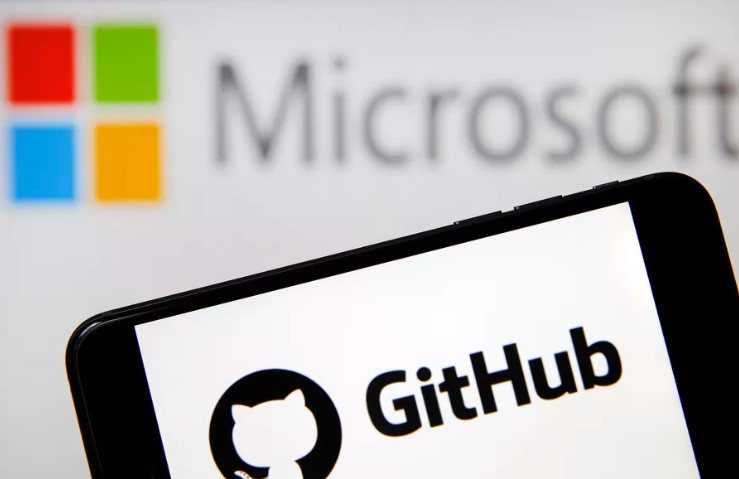

Tensions continue to grow over a GitHub contract with Immigration and Customs Enforcement, as employee activists pressure the company to cut ties with the agency.
In a standing-room-only meeting yesterday, executives answered questions from employees on the controversial contract. CEO Nat Friedman fielded questions from employees and attempted to explain why the company would renew a $200,000 contract with the immigration agency. The Verge has obtained a transcript of the conversation.
“This is an important topic not just because we find this issue of US immigration policy so odious, offensive, abhorrent, cruel, evil, such a meaningful topic,” Friedman said, according to the transcript. “I personally feel that. I know many other Hubbers share that thought.”
During the meeting, employees pressed executives about how the company would work with non-democratic countries, including China. Friedman said he didn’t have a firm answer, but noted that open-source software was available in countries like Iran.
“China’s another one, a non-democratic country, and I do think we’ll have to evolve our positions there,” Friedman told staff. “We’ve seen some US sanctions go into effect against Chinese AI companies around facial recognition just last night. So we’re not the only body that’s trying to ensure there are human rights in all these countries.”
He added that, “on net,” the company’s approach “is that we want to lean towards more access to GitHub for every developer, even in countries that aren’t democratic, even in teams that are doing things that we might disagree with.”
The transcript was also obtained by Motherboard, who first reported the meeting.
In the meeting, Friedman also emphasized that he did not believe discontinuing the contract would have an impact on ICE’s enforcement approach. “We don’t believe that unplugging technologies from government agencies will have an effect on policy,” Friedman told employees. “There is no positive impact of [revoking service] on the actual outcomes for migrants or for people who are affected by those policies.”
“These folks have choice, too,” he continued. “We have a lot of competitors who are also doing business with the federal government, and there are open-source alternatives that are out there.”
Executives at GitHub made clear that the decision to maintain the ICE contract was made after extensive consultation with Microsoft’s top executives, specifically naming CEO Satya Nadella, president Brad Smith, and cloud VP Scott Guthrie. However, Friedman denied that the company pressured GitHub to maintain the contract, saying instead that it was important for the two leadership teams to be aligned on contracting policy.
“It would have been very challenging for us to take a position on this [that’s] very different from Microsoft’s position,” Friedman told employees. “This is an area where we would probably prefer to be synchronized more with Microsoft.”
The statements come after a week of escalating tensions over GitHub’s work with ICE. In a leaked email earlier this week, Friedman told staff that the company planned to renew a $200,000 contract with ICE for an enterprise server. Friedman said GitHub wouldn’t know how ICE used the product, and that the company would also donate $500,000 to immigration charities. But the answer hasn’t sat well with all employees, many of whom have signed on to a petition calling on GitHub to drop the contract.
In the email, Friedman stressed that the $200,000 contract was “not financially material” for the company. For some, that raised an obvious question: why bother?
Friedman said GitHub didn’t want to be in the business of deciding when to unplug software, and instead would use its “corporate voice” to advocate against policies the company opposes. “Our voice is heard better by policymakers when we have a seat at the table,” Friedman’s email said.
But it’s hard for some workers not to see the direct financial benefit of continuing to work with government agencies. As one GitHub employee pointed out to The Verge, Microsoft also pursues contracts that are potentially much more lucrative. The company is in the running for a massive, $10 billion cloud computing contract with the Pentagon. “$200,000 from ICE, no one cares about,” the GitHub employee said. “But that contract is significant to Microsoft.”
Microsoft has itself faced questions from employees about working with ICE. Last year, hundreds of employees signed on to a letter calling for the company to stop providing cloud services to ICE. More recently, a group of Microsoft employees left a message of public support for GitHub activists on a newly made GitHub repo.
“Every single product and service that ICE has available to them makes them more efficient, able to operate at a bigger scale, and more capable of committing widespread human rights abuses,” the workers said. “If we continue to provide those tools to such organizations, we are continuing to take part in the oppression of immigrants.”
So far, Microsoft has yet to heed that call. The company has more than $8 million worth of contracts with ICE for Office 365 and related services, and has repeatedly said that it won’t turn down work with the US government for political reasons. “Do we want to politicize every single aspect of daily life?” Microsoft president and chief legal officer Brad Smith said in an interview with The Verge last year.
But the controversy at GitHub — and across the tech industry — seems likely to continue. “We are not satisfied with GitHub’s now-public stance on this issue,” GitHub employees said in their open letter. “GitHub has held a ‘seat at the table’ for over two years, as these illegal and dehumanizing policies have escalated, with little to show for it.”
The end result has been growing tension between GitHub’s management and its workers, with management increasingly concerned about public perception of the company’s stance.
“One thing I do want to ask of everybody is that we can keep this conversation confidential and have an open and transparent dialogue,” one executive said during the all-hands. “It is unfortunate that somebody leaked Nat’s email before we had a chance to post it to the press.”





























